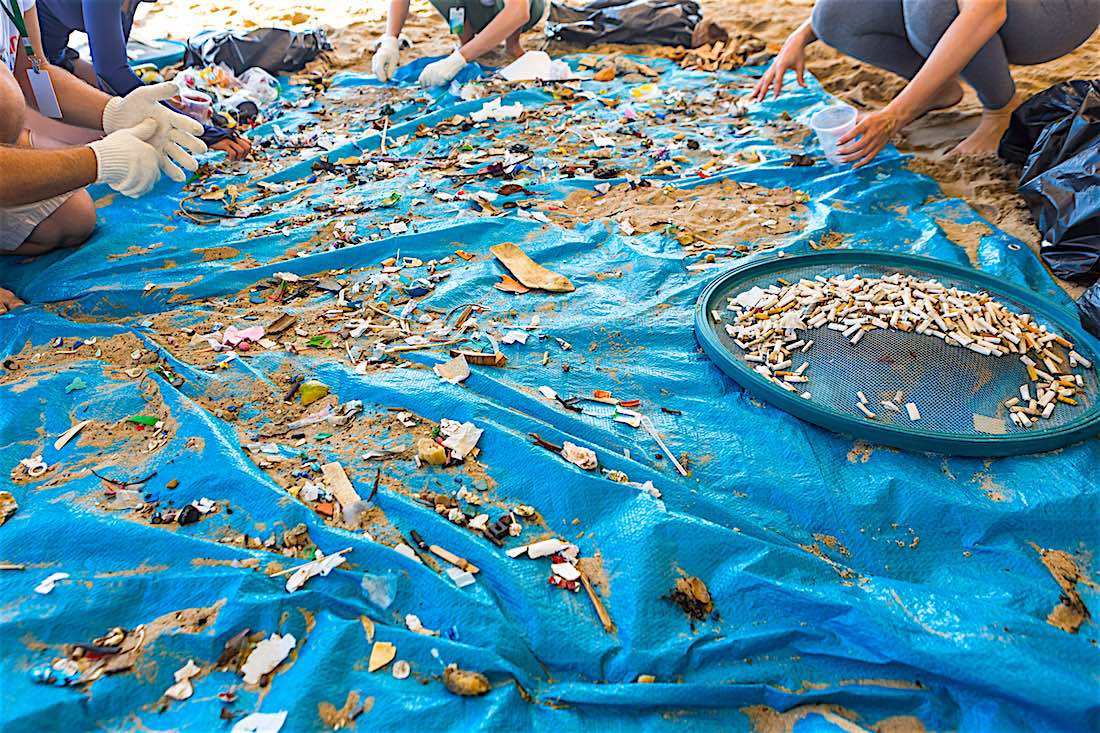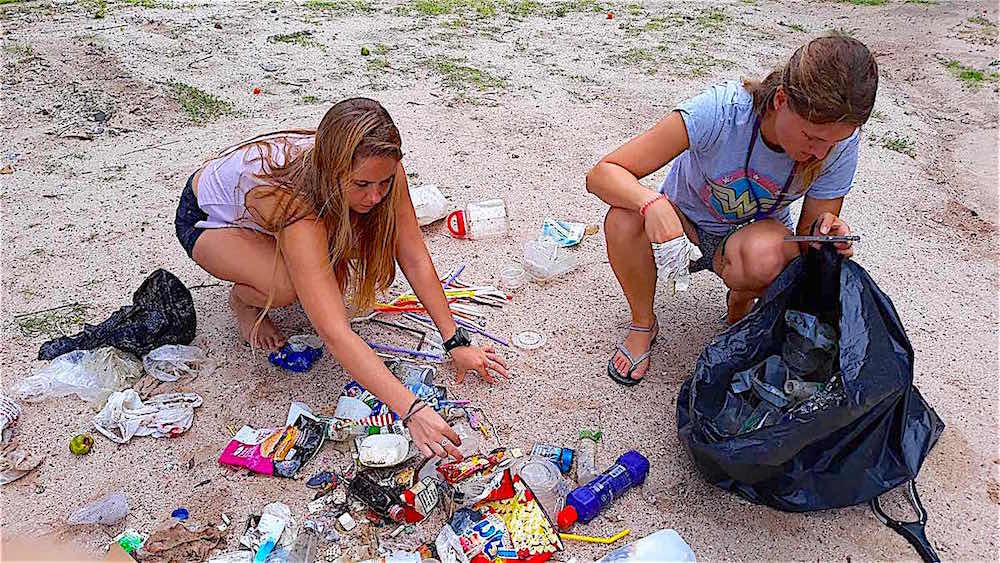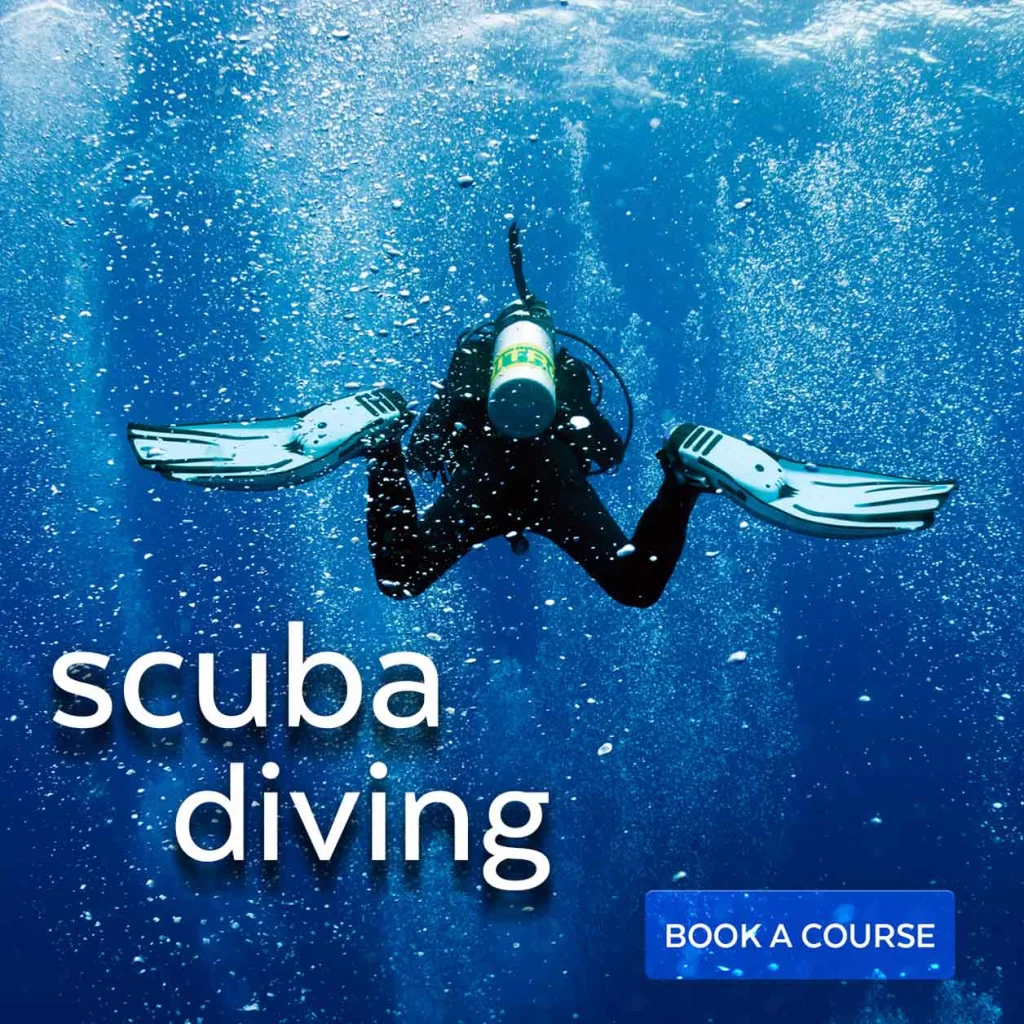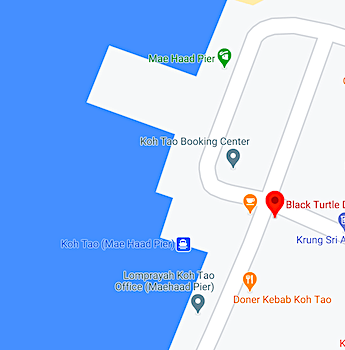Cigarette Butt Challenge Koh Tao
Keeping Koh Tao Beaches Clean of Cigarette Butts
Although the movements to ban Plastic bags, and later plastic straws has attracted more mainstream attention over the past few years, it is cigarette butts that are the single biggest source of pollution in our oceans, seas and rivers.
Most people do not draw a link between a cigarette dropped in a street and the danger they pose to marine life as well as our entire ocean ecosystems.
Due to the interconnectedness of the worlds’ water systems, it means there are many more cigarette butts that find their way into our oceans than are dropped off a boat or on a beach.
Once the butts make their way to water, the chemicals contained in them leach, polluting the environment, with serious consequences to marine animals and plant life.
And there are lots of cigarette butts that have not been disposed of responsibly.

Interesting facts about Cigarette Butts
- Over 6 trillion cigarettes are sold around the world each year.
- It is estimated that on average over 1 of every 3 cigarettes smoked is dropped on our roads, beaches and in our waterways and parks.
- The World Health Organisation (WHO) estimates that between 340 and 680 million kilograms of waste tobacco product litters the world each year.
What is it that actual cause of the problems? What is in a cigarette filter that is so poisonous?
- According to the WHO over 7000 toxic chemicals including known human carcinogens – and this creates a series threat to the environment.
- There are reports that estimate over 40% of the total waste found in the Mediterranean Sea are cigarette butts. This is toxic waste and it ends up on our roads, down our drains and into our oceans and water supplies.
- The filters are made from cellulose acetate, a plastic that takes decades to decompose.
Types of Pollution caused by Cigarette Butts
Cigarette filters (also called butts) contain toxins including nicotine, arsenic, lead, cadmium, copper, chromium, ethylphenol and polycyclic aromatic hydrocarbons.
When they enter our waterways, they cause toxic pollution and this affects everybody and everything that lives in or off those waterways.
This provides a clear and present danger to the entire Marine ecosystem as well as plant life and human beings.
The serious consequences of the toxic effects of cigarette butts polluting our oceans, rivers and streams is highlighted in a study completed in 2011 on the toxicity of cigarette butts to marine life.
This San Diego University study found cigarette butts to be acutely toxic to marine and freshwater fish.
The study went further, indicating that smoked cigarette filters, with some remaining tobacco in them, are toxic to fish species at concentrations as low as one butt per liter of water.
Cigarette butts that have already been smoked, without any residual tobacco where found to be toxic between 2 & 4 butts per litre of water. Unsmoked filters without tobacco were toxic at concentrations of 5 to 13 butts per litre.
What is being done about this?
Some public authorities around the world have tried applying fines to throwing a cigarette butt on the ground but this has not had an impact on the huge numbers of cigarette butts that end up in our oceans.
And there has been little legislation covering the manufacture and disposal of cigarette butts especially in the United States and the EU.
However, this may be changing. A new EU directive on reducing impact on the environment from certain plastic pollutants came into effect in July 2019.
This is the first time the EU has addressed the problem of plastic pollution in our waterways as an individual problem and in a structured way.
The main objective is to reduce marine trash and specifically related to tobacco products the directive recognizes;
“The huge environmental impact caused by post-consumption waste of tobacco products with filters containing plastic, discarded directly into the environment, needs to be reduced”
The majority of the directive measures must be implemented by all EU member states by July 2021 and will apply the concept of extended producer responsibility.
This would require in the case of cigarette filters for the tobacco companies to be responsible for all waste generated by their products.
The directive also calls on industry to innovate and develop viable alternatives to cigarette filters that do not contain plastic and chemicals.

The Cigarette Butt Challenge Movement
The Cigarette Butt Challenge has recently become a movement to mobilize citizens around the world to become more environmentally aware.
The concept is straight forward.
Whenever you go for a walk take a bottle with you and fill it with cigarette butts.
Then take a photo and share it, along with a hastag such as, #FillTheBottle or #trashlesschallenge or in France #megotchallenge (Cigarette butt challenge in French)
In the UK they have the #BintheButt campaign and they have a short video that explains the problem very well to the public.
There are also organizations such as Cigarette Butt Pollution Project who work to reduce the environmental burden of cigarette butt waste by providing expertise and assistance to governments, local communities, environmental organizations and individuals.
What we do about cigarette pollution at Black Turtle Dive.
We conduct the 30-minute cigarette butt challenge once a week and it is also part of our Divemaster, Instructor and Conservation Internship programs.
The objective is simple. Try and pick up as many cigarette butts as you can. The rules? You have thirty minutes to pick up as many cigarette butts as you can.
Around the Black Turtle Dive area on the beach we also provide marked cigarette butt sand trays for beach goers to dispose of their finished cigarette buts after they have finished smoking.





